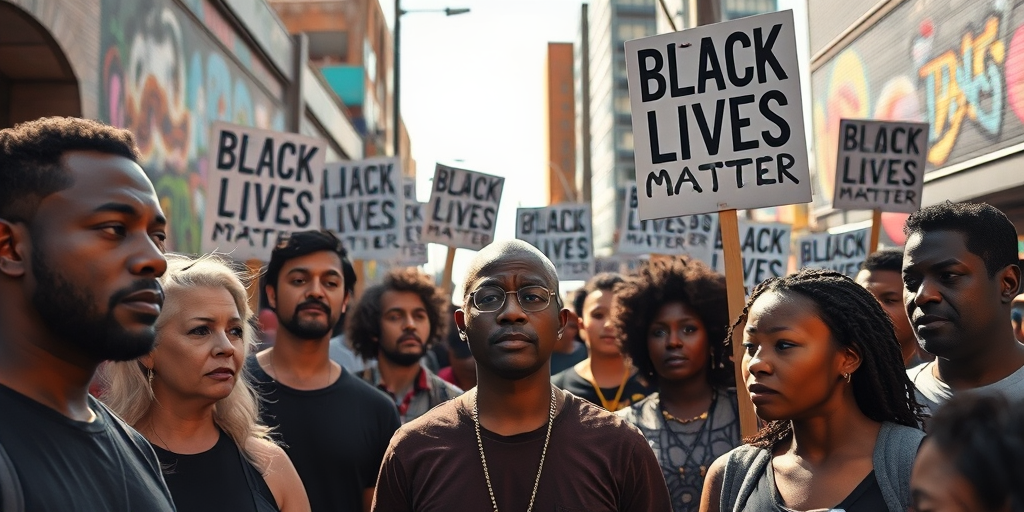Why DEI May Be America’s Last Best Hope for Unity
Diverse Voices in America: A Path Forward
The ongoing efforts to dismantle diversity, equity, and inclusion (DEI) initiatives across America have sparked a crucial debate about the nation’s future unity. In an opinion piece penned by K. Ward Cummings, compelling arguments are made that affirm the significance of DEI as possibly America’s last best hope for unity. This perspective gains importance in light of recent Supreme Court decisions striking down affirmative action, and attempts to dismantle DEI programs under former President Donald Trump’s administration. Without these efforts, Cummings argues, America risks unraveling the social fabric critical for cohesion.
The Fading Protests of Affirmative Action’s Demise
The Supreme Court’s abolition of affirmative action didn’t witness the heightened protests many expected, particularly from white women, who constituted a significant beneficiary group. Critics of affirmative action seized on this silence as evidence of its unpopularity, yet Cummings suggests this quiet reaction belies deeper complexities, including a possible underestimation of diversity efforts’ intrinsic value in nurturing societal unity.
According to Anna Lopez, a local educator in Austin, “The silence following the affirmative action ruling feels loud to those of us in education who understand the transformative impact of these policies on creating a diverse learning environment. This isn’t about preference, but equal opportunity.”
Historical Context: Diversity’s Role in American Cohesion
Historical milestones offer poignant reminders of how deliberate diversity efforts have attempted to weave a more unified America. Whether through Reconstruction after the Civil War or the Civil Rights Act of 1964, institutional measures have aimed at integrating different racial and gender communities into shared spaces. These initiatives provided marginalized groups, particularly Black men, with greater agency—offering them, not an undue advantage, but a fair chance against entrenched stereotypes and cultural biases.
For many in Austin’s Black community, affirmative action symbolized hope. Derrick Johnson, a community leader, notes, “Programs like affirmative action gave Black men a fighting chance. For many of us, it was less about a step up and more about leveling the playing field.”
Trump-Era Policies: A Shift Toward Separation
Under Donald Trump’s policies, the removal and undermining of DEI programs became evident. His administration’s efforts to bolster charter schools and minority-serving institutions while scaling back public education funds revealed a pivot towards increased segregation. Furthermore, diminishment of the Fair Housing Act’s enforcement has provoked concerns about a resurgent divided society.
Cummings warns that these policies feed a dangerous narrative of separation—a view echoed by Carlos Mejia, an Austin city planner. “Reversing decades of DEI progress,” Mejia argues, “sows seeds of economic disparity and social discord that will take generations to mend.”
The Unique American Challenge: Building Unity
The diversity dilemma in the U.S. stems from its foundational nature as a country of immigrants lacking homogeneous cultural traits seen in other nations. This absence necessitates affirmative measures to foster interaction and collective identity among its people. Individualism, deeply ingrained in American culture, poses an additional challenge to unity efforts, making DEI initiatives all the more vital.
“It’s a delicate balance,” says Dr. Emily Greene, a sociologist at the University of Texas. “The American experiment thrives on diversity and innovation, but reconciling individualism with community needs requires thoughtful policy interventions.”
Local Impact and Future Implications
For residents in Austin and the broader community, these national trends resonate at a regional level. The dismantling of DEI initiatives could see increasing divides in education, job opportunities, and housing, areas where diverse inputs have historically driven innovation and equity. The dismantling of DEI not only undermines progress but may lead to increased tensions and disparities within communities.
As America reaches its 250th year, Cummings emphasizes the importance of a concerted effort towards maintaining unity, painting a future that relies on the collective action of its citizens to uphold the country’s inclusive ideals. This vision speaks directly to ongoing debates in Austin—about education access, fair housing, and economic opportunity—highlighting that local solutions must align with broader national goals.
A Call to Action
Local leaders, educators, and residents play a crucial role in this narrative. Engaging in dialogue and advocacy, they can reinforce the necessity of DEI programs in building robust, cohesive communities. For those interested in learning more or getting involved, resources such as Austin’s Office of Equity provide pivotal platforms for action and support.
The discussion around DEI is not just about policies but about America’s future identity. With diversity etched into the nation’s ethos, maintaining unity requires not only recognition of its value but proactive efforts to ensure these principles thrive for generations to come.







